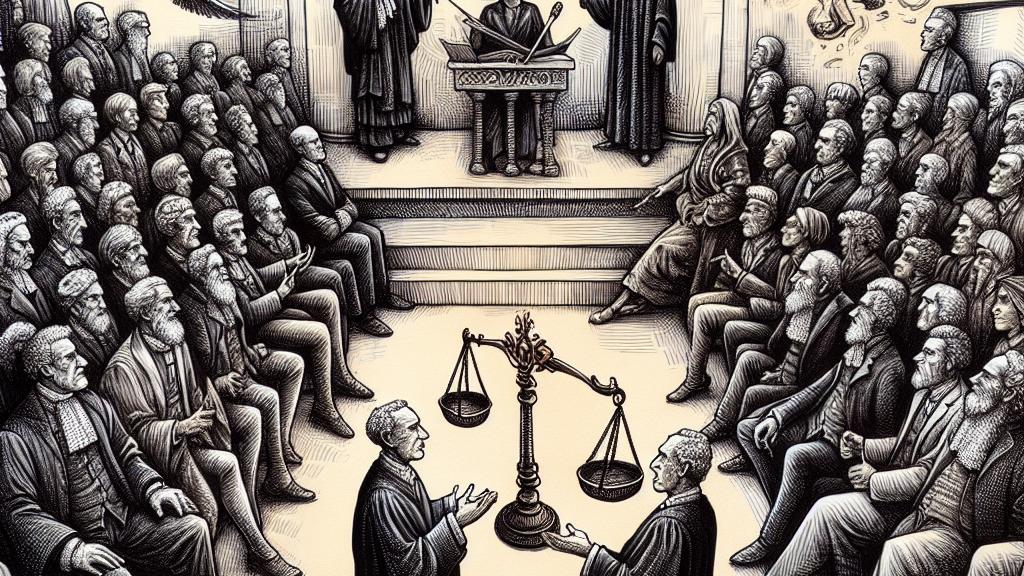The Ink of the Squid: Macías' Strategic Support in Campo's Abstention Regarding the Amnesty
Overview
- Explores the intricate political drama surrounding Spain's amnesty law.
- Compares the divergent approaches of Constitutional Court justices Campo and Macías.
- Highlights the significant impact of their choices on the public's trust and political landscape.

The Context of the Amnistía Law Debate
Amidst the heated political climate in Spain, the amnesty law debate has become a lightning rod for controversy, drawing attention from various sectors of society. Central to this ongoing saga is Juan Carlos Campo, a magistrate at the Constitutional Court and former Minister of Justice, who made the pivotal choice to abstain from discussions about a law he previously criticized as unconstitutional. By stepping back, Campo not only attempts to safeguard the court's integrity but also raises pressing questions about political loyalty and judicial impartiality. His strategic abstention is more than a personal decision; it reflects the broader tension between legal obligations and the expectations of political allies, illustrating the complexities faced by those responsible for upholding justice in an environment fraught with division.
José María Macías' Position in the Constitutional Court
In juxtaposition, José María Macías remains resolute, refusing to recuse himself, even as scrutiny intensifies. His vocal opposition to the amnesty, stemming from a track record as a member of the General Council of the Judiciary, has led many to question his ability to be impartial. The ongoing debate surrounding Macías sheds light on the varying interpretations of law and justice within the court. For example, Macías’ insistence on staying in the conversation demonstrates not just a personal conviction but also highlights a broader ideological battle that could shape future policies. His unwavering stance embodies a conservative viewpoint, potentially resonating with segments of society who prioritize legal strictness over reconciliation.
Political Ramifications and Public Perception
The contrasting approaches of Campo and Macías create a rich narrative, highlighting the delicate balance between law and the public's perception of legitimacy. Campo's decision to abstain can be viewed as a bold step to restore faith in an institution often criticized for its ties to politics. It emphasizes an important principle: that judges must sometimes prioritize the integrity of the judicial process above all else. Alternatively, Macías’ refusal to withdraw signifies a commitment to legal tradition, yet it raises alarms among those who believe this stance disregards the need for compassion and healing in society. As these events unfold, they generate compelling discussions on justice and accountability in Spain, prompting citizens to grapple with the implications of judicial decisions on their daily lives. Ultimately, both figures personify the intricate relationships between law, politics, and the public's trust, making the amnesty debate a focal point for understanding the ongoing evolution of Spanish democracy.

Loading...